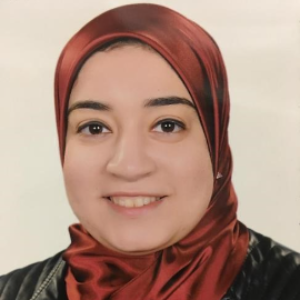Title : Psychosocial considerations in management of corticobasal degeneration
Abstract:
Background:
Corticobasal degeneration (CBD) is a rare neurodegenerative tauopathy primarily affecting the cerebral cortex and basal ganglia, often featuring cognitive decline and parkinsonism. With no proven treatments, management goals include improving patients' quality of life. We evaluate here the varying presentations of symptoms and psychosocial factors affecting a series of women of Asian Indian descent with CBD.
Case Descriptions:
Patient 1 was a 77-year-old woman with short-term memory loss, who then had left anterior cerebral artery territory ischemic stroke with right-sided hemiparesis and neurogenic pain. MRI Brain confirmed the stroke's location but did not account for cognitive decline. Patient 2 was a 75-year-old woman with dysphagia, who then developed right-sided hemiparesis, right neck spasms, unstable gait, and short-term memory loss. MRI Brain and Cervical Spine revealed only showed mild chronic microvascular changes and multilevel cervical spondylosis. Patient 3 was a 49-year-old woman with left hand and leg tremors, treated with carbidopa/levodopa, who then developed weakness and paresthesias in all four extremities. DaTScan revealed bilateral caudate nuclei and putamina dysfunction, explaining the parkinsonian tremors but not the other symptoms. Patient 4 was an 82-year-old woman with left foot weakness impairing gait and causing multiple falls, who then developed slurred speech. MRI Brain showed chronic microvascular changes, but no stroke or other abnormality to explain focal neurological symptoms.
Results:
PET-FDG Brain studies were performed for all patients. Patient 1's study revealed severe hypometabolism in bilateral basal ganglia, bilateral thalami, and left supplementary motor cortex, out of proportion to the known stroke. Patient 2's study revealed mild hypometabolism at the left frontal and parietal lobes, sparing the precuneus and posterior cingulate, which explained right-sided hemiparesis. Patient 3’s study revealed mild hypometabolism at the left sensorimotor cortex, basal ganglia, and thalamus, explaining weakness and paresthesias on the right side of the body. These three patients had findings consistent with corticobasal syndrome phenotype of CBD. Patient 4’s study revealed hypometabolism in bilateral premotor cortices, supplementary motor areas, and anterior cingulate gyri, consistent with progressive supranuclear palsy phenotype of CBD.
Conclusions:
Various psychosocial factors were considered during evaluation and management for all patients. They had limited English proficiency, so cognitive testing was performed with medical interpreter assistance to ensure accurate results. Symptomatic treatment was tailored for each patient: Patients 1 and 3 received carbidopa/levodopa for parkinsonian tremors, while Patient 2 received cyclobenzaprine for intermittent muscle spasms. All patients had multigenerational households, and results and prognoses were discussed with multiple relatives so they could coordinate care responsibilities. All families were reluctant to introduce home health aides, expressing cultural beliefs that families should take care of their relatives on their own. As we discussed these beliefs over time, and explained the anticipated symptom progression over time, all families became more accepting of introducing home health aides, seeing them as a supplement, and not a replacement, for the family's role. Additional research is needed to explore the etiology and psychosocial impacts of CBD, to help develop appropriate treatments and conservative measures specific for this neurodegenerative condition.


